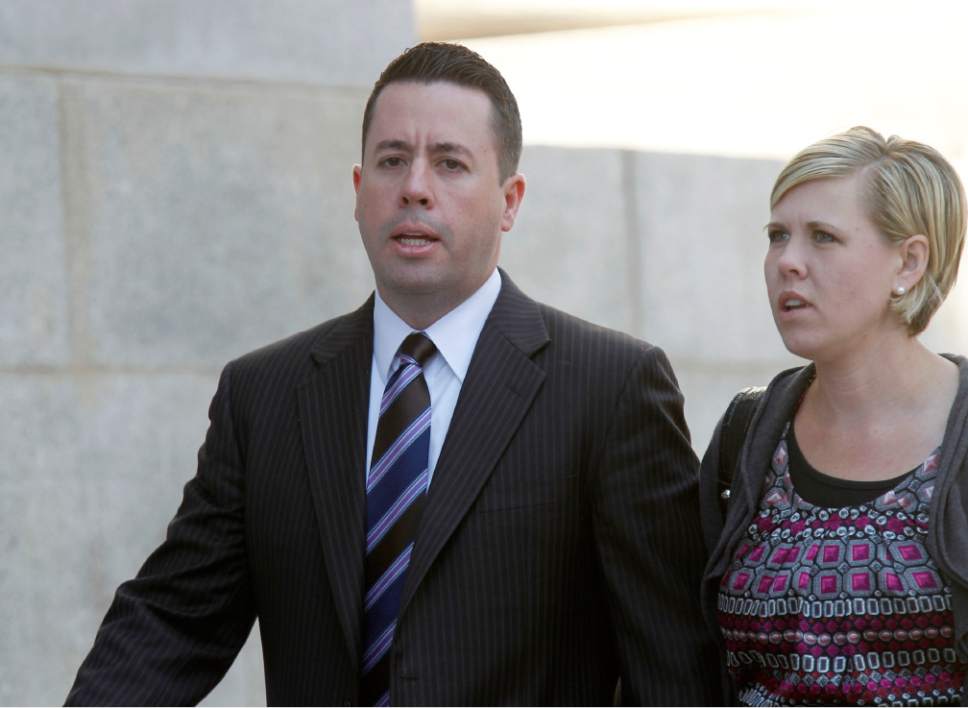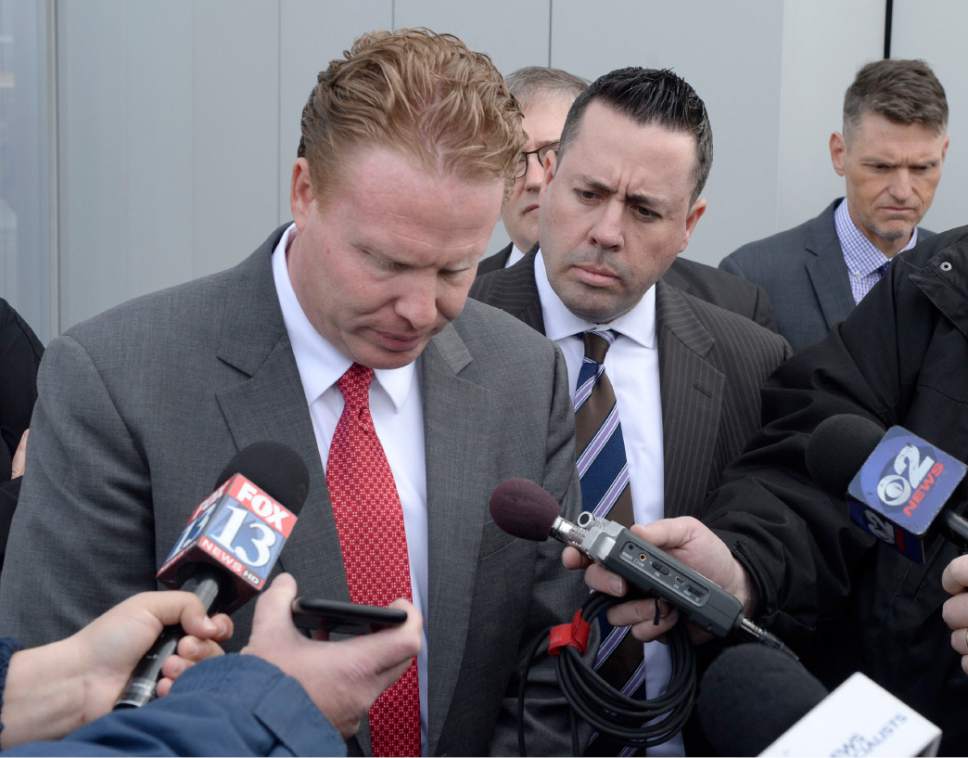This is an archived article that was published on sltrib.com in 2016, and information in the article may be outdated. It is provided only for personal research purposes and may not be reprinted.
Federal prosecutors say a St. George businessman could spend more than 33 years in prison for lying to the banks that were processing credit-card payments for his online marketing company.
Jeremy Johnson was convicted last month of eight counts of submitting false information to a bank in Salt Lake City's U.S. District Court.
A jury acquitted Johnson, who served as his own attorney during the trial, of 78 other charges including those of bank fraud, wire fraud, conspiracy and money laundering.
The convictions should earn Johnson a prison term somewhere between 324 and 405 months — or 27 to 33.75 years — in prison, based on federal sentencing guidelines, Utah's U.S. attorney's office says in a new court filing.
That is far greater than the zero to six months that Johnson's former attorney, Rebecca Skordas, has said federal sentencing guidelines were likely to apply in the case, particularly since the entrepreneur has no previous criminal history and because no bank lost money processing credit-card charges for I Works.
In their memorandum to the court, federal prosecutors said they reached the more lengthy penalties based on myriad aggravating factors, including that as head of the company, Johnson was a "leader/organizer" who encouraged others to skirt the law.
The document also states, however, that prosecutors will "be asking for a downward departure from these guideline ranges" and want to make a final sentencing recommendation at a later date.
Sentencing is set for June 20 before U.S. District Judge David Nuffer.
Johnson's current lawyers, Karra Porter and Mary Corporan, have not yet filed a response to the government's memorandum to Nuffer.
Johnson and others from I Works were accused of conspiring to defraud Wells Fargo Bank by submitting applications for new accounts using the names and personal information of employees and family members.
That was done, the government alleged, to cover up that I Works had been flagged on a bad-merchants list for incurring a large number of chargebacks and was trying to conceal that it was behind new account applications.
Pinpointing actual losses in the case is "difficult if not impossible," the government said in its sentencing memorandum to the court. But to say there were none — either to consumers or Wells Fargo — would be false, the government added, noting that Johnson has also been sued by the Federal Trade Commission as a result of I Works' business practices.
"The magnitude of defendant's actions and fraudulent conduct has directly affected numerous victims and has caused pecuniary loss," court papers state, adding that Johnson and others "demonstrated a singular interest in obtaining monetary benefit without regard to any of the negative consequences caused to the people and entities they used to perpetuate their fraud."
Prosecutors have also recommended between 188 and 235 months — or 15 to 19 years — in prison for Ryan Riddle, the former I Works general manager and one Johnson's co-defendants.
The jury convicted Riddle, who also represented himself at trial, of six counts of making false statement to a bank. Like Johnson, he was acquitted of dozens of other charges.
I Works accountant Scott Leavitt was acquitted of all charges.











